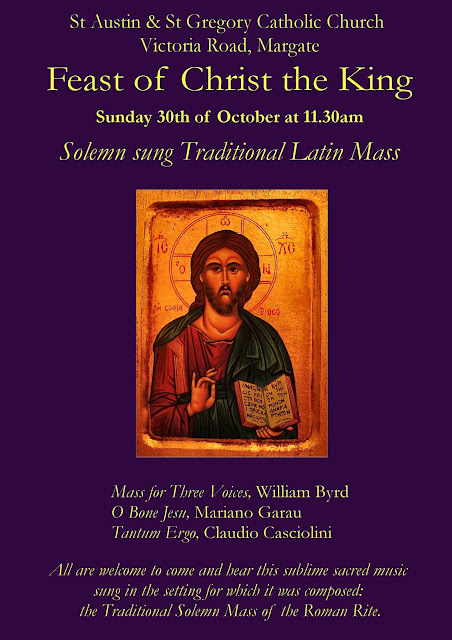Confraternity of Catholic Clergy Colloquium 2016
Aylesford Priory, the home of the brown scapular, recovered by the Carmelites 400 years after it was dissolved by King Henry VIII, was the venue for the 2016 colloquium of the British Province of the Confraternity of Catholic Clergy last week. About fifty of us gathered to hear a fine selection of speakers, celebrate the sacred Liturgy, and enjoy informal convivium. Fr Jerome Bertram of the Oxford Oratory spoke on ‘Holy Orders: the Sacrament, Celibacy and the Vita Communis ’, Dom Mark Kirby, Prior of Silverstream Monastery (and blogger at Vultus Christi ), took the subject ‘Primary and Indispensable: the liturgy, Wellspring of Life’, and Fr Guy de Gaynesford, Rector of the School of the Annunciation which is based at Buckfast Abbey, spoke on ‘New Evangelisation and the Pedagogy of God’. The Mass on Thursday was celebrated by Bishop Paul Mason, Auxiliary in Southwark, who has pastoral responsibility for Kent, and on Friday, the celebrant was Mgr Newton, the Ordinary of...







